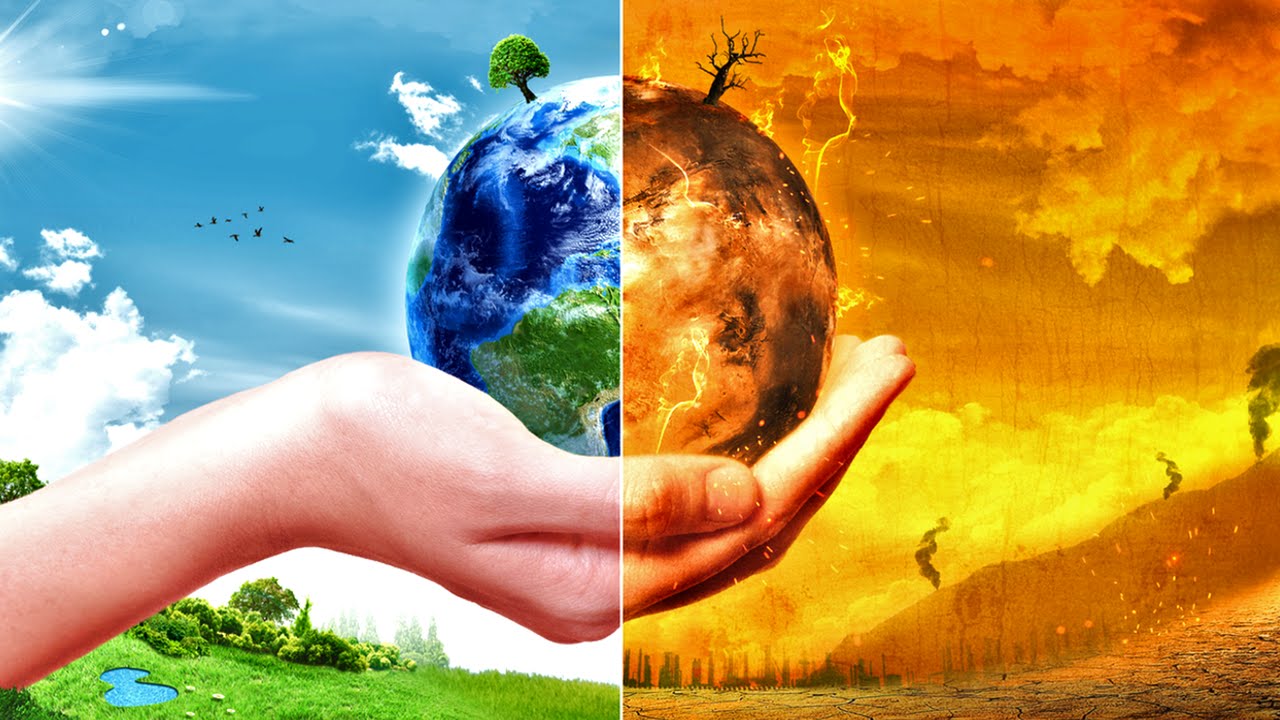Climate Change: Causes and Concerns-II
By embracing sustainable practices and prioritizing the common good, we can make a path towards a more resilient and sustainable future for all future generations
Post by DR. ZUBAIR AHMAD AKHOON on Monday, March 25, 2024

India against Climate Change
India, as one of the world's most populous countries and a rapidly developing economy, plays a critical role in the global fight against climate change. Recognizing its unique position and responsibilities, India has undertaken a range of actions and commitments to combat climate change while striving to achieve sustainable development.
Here's an overview of India's efforts against climate change:
Nationally Determined Contributions (NDCs)
Under this Paris Agreement, India has submitted ambitious NDCs to reduce the emissions intensity of its GDP by 33-35% by 2030 from 2005 levels, to achieve about 40% cumulative electric power installed capacity from non-fossil fuel-based energy resources by 2030 with the help of technology transfer and low-cost international finance, and to create an additional carbon sink of 2.5 to 3 billion tonnes of CO2 equivalent through additional forest and tree cover by 2030.
International Solar Alliance (ISA)
India, in partnership with France, launched the International Solar Alliance (ISA) during COP21 in Paris. The ISA aims to mobilize more than $1 trillion of investments needed by 2030 for the massive deployment of solar energy and pave the way for future solar generation, storage, and technologies for countries' individual needs.
Renewable Energy Expansion
India has set an ambitious target of installing 175 GW of renewable energy capacity by 2022, which it aims to increase to 450 GW by 2030. This includes solar, wind, biomass, and small hydroelectric plants.
Energy Efficiency Measures
India has launched several programs aimed at improving energy efficiency across various sectors of the economy. The Perform Achieve and Trade (PAT) scheme, for example, is a market-based mechanism to improve energy efficiency in large energy-intensive industries. The UJALA scheme aims to promote the use of energy-efficient LED bulbs among residential consumers.
Electric Mobility
To reduce dependency on fossil fuels and curb emissions, India is promoting electric mobility. The government has provided incentives for the manufacture and purchase of electric vehicles (EVs) through schemes like FAME India (Faster Adoption and Manufacture of Hybrid and Electric Vehicles).
Climate Action Programs
India has also launched various programs aimed at climate resilience and adaptation, such as the National Action Plan on Climate Change (NAPCC), which outlines eight national missions in the areas of solar energy, enhanced energy efficiency, sustainable habitat, water conservation, sustaining the Himalayan ecosystem, a green India, sustainable agriculture, and strategic knowledge for climate change.
Coal Phase-Down
While India has not yet committed to phasing out coal, it is taking steps to reduce its dependence on coal for energy production. This includes plans to cease new coal plant construction and focus more on renewable sources for new power generation capacities.
Leadership in Global Platforms
India has shown leadership on global platforms advocating for sustainable lifestyles and responsible consumption patterns as part of its climate action plan. It emphasizes the concept of "climate justice" and the need to protect the poor and vulnerable who are most affected by climate change.
India's approach to tackling climate change is holistic approach, balancing its developmental needs with environmental sustainability. The country's actions show its commitment to play a significant role in global efforts to mitigate climate change, despite facing considerable developmental challenges.
Conclusion
Climate change represents one of the most pressing threats facing humanity, with far-reaching consequences for ecosystems, societies, and economies worldwide. Urgent and immediate action is needed to mitigate greenhouse gas emissions, adapt to changing climatic conditions, and build resilience in the face of environmental challenges. International cooperation, political will, and public engagement are critical in addressing climate change and safeguarding the planet for future generations. By embracing sustainable practices and prioritizing the common good, we can make a path towards a more resilient and sustainable future for all future generations.
(Concluded…)
(Author is Senior Assistant Professor, Division of veterinary Medicine, SKUAST Kashmir)